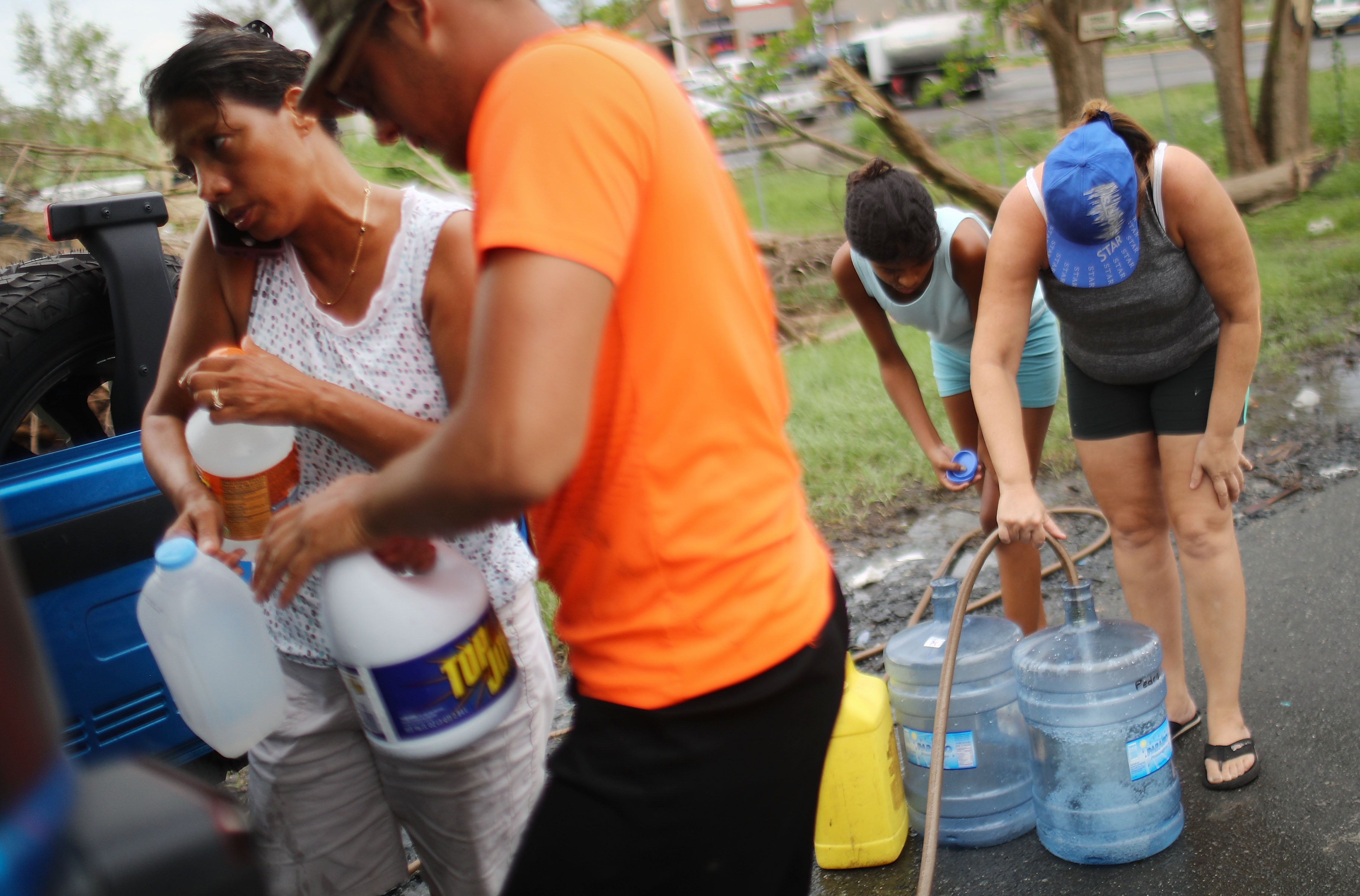
Source: Mario Tama / Getty
As we approach almost four weeks since Hurricane Maria, the people of Puerto Rico are still living in catastrophic conditions, with little news available to discern fact from fiction.
While the “official” death numbers that mainstream news reports are 48 dead, media group Report, Reimagine, Revive Puerto Rico is reporting that there are over 400 dead in the capitol of San Juan alone.
“I wish I could say that I thought it wasn’t a socioeconomic caste system, but it absolutely is,” volunteer nurse Misty Richards told Newsweek. “These Puerto Ricans are being treated like they are disposable. It’s been inhumane.”
While 45 threatens to take away FEMA, first responders, and military, claiming that aid has been “amazing (under the most difficult circumstances),” citizens have experienced otherwise. FEMA is reportedly only allowing Puerto Ricans to apply for aid online but a majority of the island lacks internet and electricity. Others have reported that FEMA hasn’t been able to reach the smaller areas that need it the most. A team from the New York Post said they spent three days traveling the island and only witnessed one instance of federal aid distribution.
“There hasn’t been any help from the government, nobody has passed, nobody has come, nobody,” Carmen Pantoja of Vega Baja, a small town in the forests of north-central Puerto Rico, told the Post. “And right now, nobody has come to visit, just one friend of mine came and brought some groceries.”
When FEMA is able to bring food packages to citizens, the organization typically provides snacks rather than actual meals.
Since many Puerto Ricans haven’t even been able to get their basic medication, more diseases have begun to spread due to contaminated water. A total of 10 people have reportedly come down with leptospirosis, a lethal disease spread by animal urine. Access to clean water has proven almost impossible in the wake of the storm with many islanders taking the risks they need to try and survive.
“I’m going to drink it,” Juan Carlos Oquendo told CNN about contaminated well water near a hazardous waste site. “I’ve drank it before. It tastes fine. If I don’t drink water I’m going to die. So I might as well drink this water.”
This is only the beginning of what will be potentially a six month to a year’s worth of reconstruction on the island, including regaining power, functioning water lines, reparation of roads and bridges, and other very basic living conditions. But somehow 69 Republicans in the House voted against additional aid for the island.
The lack of empathy, concern and urgency for Puerto Rico isn’t just appalling, it’s irresponsible. This is nothing short of exactly what San Juan Mayor Carmen Yulín Cruz said in a press conference just a couple of weeks prior: “what we we are going to see is something close to a genocide.”
















